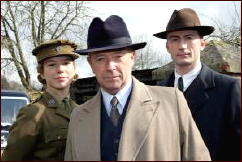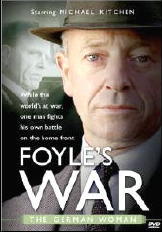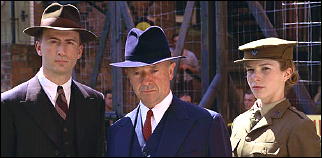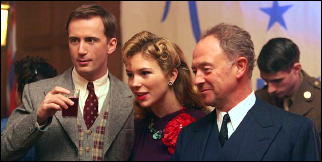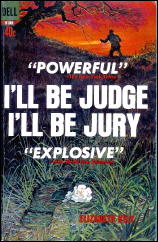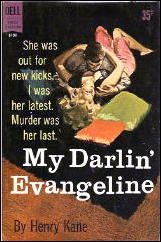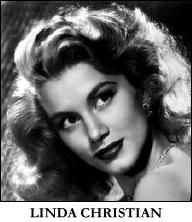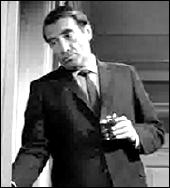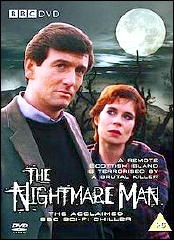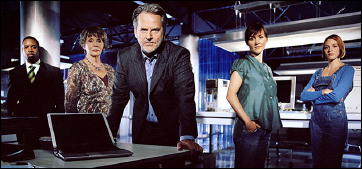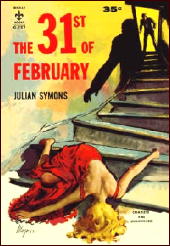Fri 4 Jun 2010
A TV Review by Mike Tooney: KRAFT SUSPENSE THEATRE “Four into Zero.”
Posted by Steve under Reviews , TV mysteries[6] Comments
“Four into Zero.” An episode of Kraft Suspense Theatre (Season 2, Episode 15). First air date: 18 February 1965. Jack Kelly (as Charles Glenn), Robert Conrad (Gary Kemp), Joe Mantell (Frankie Shields), Jesse White (Emil Glueck), Martha Hyer (Caroline Glenn), Sue Randall (Jane Crane), Ronnie Dapo (the boy), Hollis Irving (the mother), Murray Alper (the conductor). Teleplay: Don Brinkley. Story: Milt Rosen. Director: Don Weis.
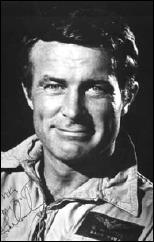
When most of us talk about “making money,” we usually mean collecting a paycheck from an employer. Four men, however, are planning to make money — quite literally..
The four are: Emil Glueck, an expert printer; Frankie Shields, an ex-acrobat with a drinking problem; Gary Kemp, a handsome playboy who knows how to wheedle information from young women; and Charles Glenn, who doesn’t really need to steal since he’s married to an incredibly wealthy woman, Caroline. Glenn chafes at the situation, however, and feels he has something to prove by masterminding this caper.
To get the inside information he needs, Glenn has assigned Kemp to date Jane Crane, who works in a large bank in Chicago. From Kemp, Glenn learns that the currency printing plates for a South American country have recently been crafted and are due to be shipped to that banana republic on a train from Chicago to Los Angeles.
The plan is simple: Get aboard the train, “borrow” the plates and run off a million dollars’ worth, return the plates as if nothing had happened, and convert the money to American long green at prevailing exchange rates. Piece of cake.
However, while a plan might be simple in conception, it isn’t always easy in execution. The unexpected sometimes occurs, and that’s when one’s ability to adapt to changing circumstances is called for.
Among the unanticipated developments: the presence on the train of a railroad inspector on holiday; that nosy little boy who manages to catch sight of Shields when he’s doing his acrobatic thing; Jane’s determination to find out why Kemp, her fiance, has apparently abandoned her and gone missing; the loose nails that roll out of sight; and that falling whiskey crate.
The question is: Can this collection of oddballs pull off this caper, or will they soon be cooling their heels in federal prison ….?
Despite the stated desperation of some of the characters, as viewers we never really feel it. Nevertheless, the caper itself is fascinating to watch, and the ending is surprisingly upbeat.
Jack Kelly (1927-92) previously appeared in “The Name of the Game” (reviewed here). Martha Hyer (b. 1924) was in “Crimson Witness” (reviewed here). Robert Conrad (b. 1929) is best remembered for The Wild, Wild West (1965-69), but he had a P.I. series, Hawaiian Eye (1959-63), a short-lived spy series, A Man Called Sloane (1979), and gave Lt. Columbo a hard time in “An Exercise in Fatality” (1974).
Joe Mantell (b. 1920) is a versatile actor; he can do comedy or drama, and was nominated for a Best Supporting Actor Oscar for Marty (1955). Jesse White (1917-97) almost always played it for laughs, but you could find him acting seriously on occasion (e.g., Witness to Murder, 1954); still, he has an unforgettable moment in Harvey (1950) when he’s reading the definition of a “pookah.”
